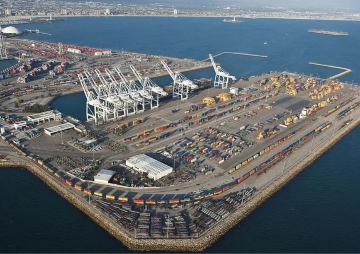Amidst, growing concern and apprehension over the failure of political parties to reach an understanding on power-sharing, the first Seven Party Alliance meeting was held last week to evolve consensus and find a way out to the present crisis.

Nepal
< class="maroontitle">Constituent Assembly: A New Roadmap for Nepal
Amidst, growing concern and apprehension over the failure of political parties to reach an understanding on power-sharing, the first Seven Party Alliance meeting was held last week to evolve consensus and find a way out to the present crisis.On May 9, senior leaders of the SPA agreed to hold the first Constituent Assembly meeting in the last week of May 25-28. As per the interim constitution, the first meeting of the CA is all set to abolish monarchy and declare Nepal a republic. The meeting suggested the Prime Minister to call the first sitting of the CA, and it decided to form a taskforce to submit its recommendation on pressing issues including power sharing in the new government, prepare the working procedures, agenda for the first CA meeting, and nominating 26 CA members. This has incensed the Maoists who have started seeking PM Koirala’s resignation. Koirala is being accused of being dragging his feet on the issue of government formation. The complaint is that Koirala is too keen to become the first President of Nepal. The Maoists have also threatened to hold street demonstrations if Koirala did not resign. Time is running out for Nepal once again, with the deadline for the crucial first meeting of the CA nearing fast.
Pakistan
< class="maroontitle">Coalition on the edge
The ruling coalition government remained teetering on the brink over the judiciary issue with Asif Ali Zardari and Nawaz Sharif unable to reach a compromise. The issue of restoration of judges sacked by President Pervez Musharraf when he sacked them after imposing Emergency in November has become an immensely sensitive issue and the credibility of the coalition partners rest on how the problem is resolved. Sharif is in favour of the total restoration of the judges, including Supreme Court Chief Justice Iftikhar Chaudhary while Zardari is not too keen on Chaudhary. Zardari, and his party PPP, also maintain that they should not make a mistake to correct another mistake. They would like a presidential ordinance followed by a confirmation from the National Assembly. PPP is also pressing for a comprehensive constitutional package and believe that the judges’ issue should be included in it. The issue has generated anxiety about the future of the coalition.
Sri Lanka
< class="maroontitle">LTTE’s ‘Operation Manual’ uncovered
In a significant set back to LTTE’s propaganda machine, Royal Canadian Mounted Police made public its ‘operation manual’ in a court of law this week. The manual was seized from the offices of World Tamil Movement (WTM), a front organisation for the terrorist group in 2006. The manual contained details of the recruitment of child soldiers and for `trapping` foreign politicians for propaganda purposes. The court affidavit revealed LTTE’s directions to its foreign subsidiaries to ``establish contact with parliamentarians and political figures of all levels of government in order to advance their cause. `` RCMP has moved the court to seize the WTM's Montreal headquarters as well as its bank accounts, on charges that the assets were being used to finance terrorism. The Canadian government had listed LTTE as a terrorist group in 2006.
At the domestic front, President Rajapaksa, in a move that offended the opposition parties, prorogued the National Parliament for a month to avoid discussions on the Eastern provincial elections. The opposition, however, accused the President of making such a move to stall investigations into corruption charges against the government being investigated by the opposition parties.
Maldives
< class="maroontitle">Elections in August
In an unexpected turn of events, the Maldivian government decided to conduct the presidential elections in August rather then in October, the month of Ramadan. But the opposition parties and the Speaker of the Special Majlis expressed doubts that since an independent commission could not be set up in such a short time, free and fair elections would be doubtful. The Presidential contenders also held that there was hardly any time left for campaigning. The government has also passed a half-baked Freedom of Information Bill with some unwarranted regulations. As per the Bill, the government can charge a fee for providing information and can also withhold the information if it is marked `confidential’. The Bill does not offer any protection to whistleblowers, especially in the government department.
< class="maroontitle">Contributors:
- Anjali Sharma – Sri Lanka, Maldives
- Joyeeta Bhattacharjee – Bangladesh
- Paul Soren – Nepal, Bhutan
- Wilson John – Pakistan
The views expressed above belong to the author(s). ORF research and analyses now available on Telegram! Click here to access our curated content — blogs, longforms and interviews.




 PREV
PREV

